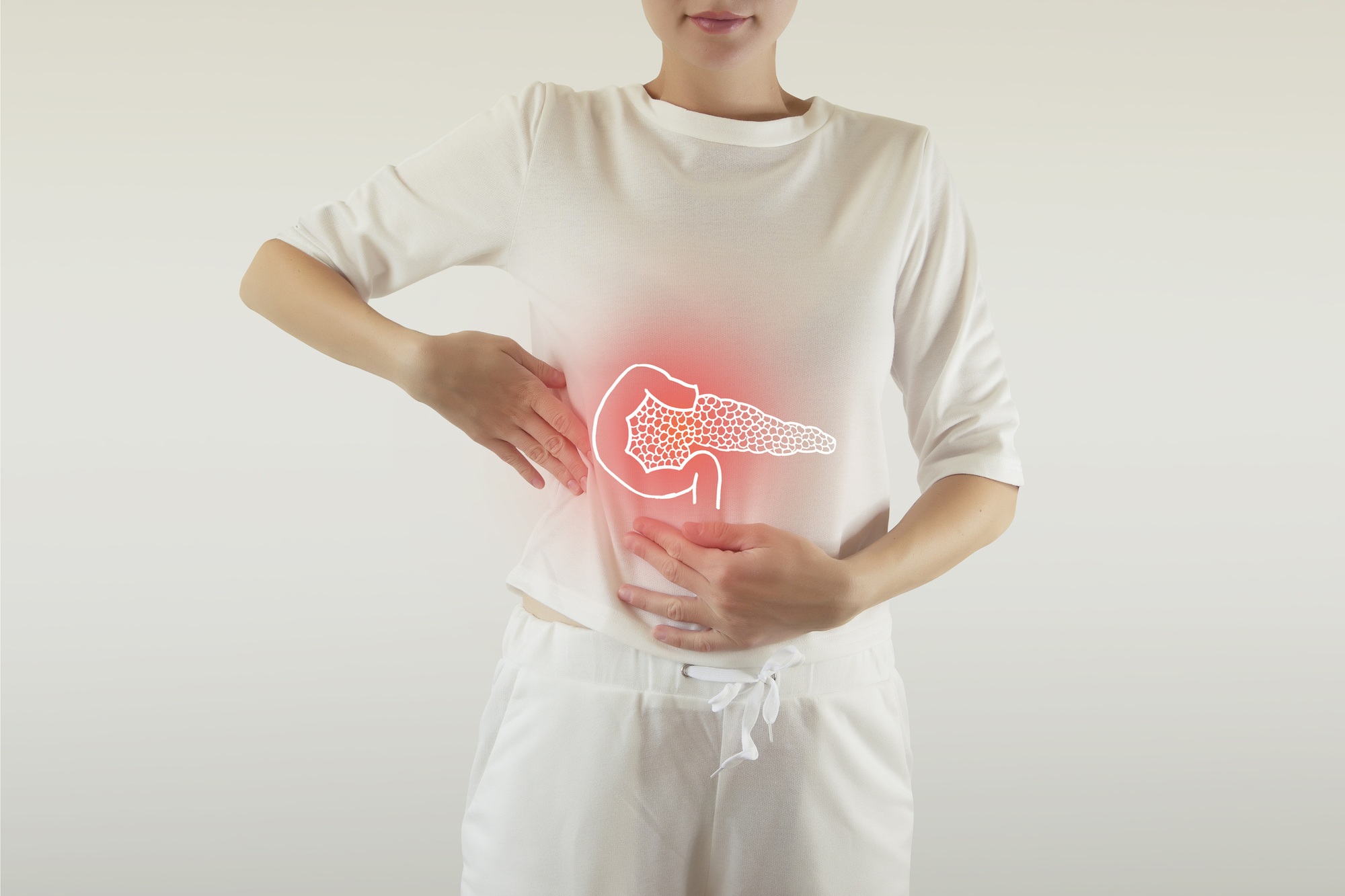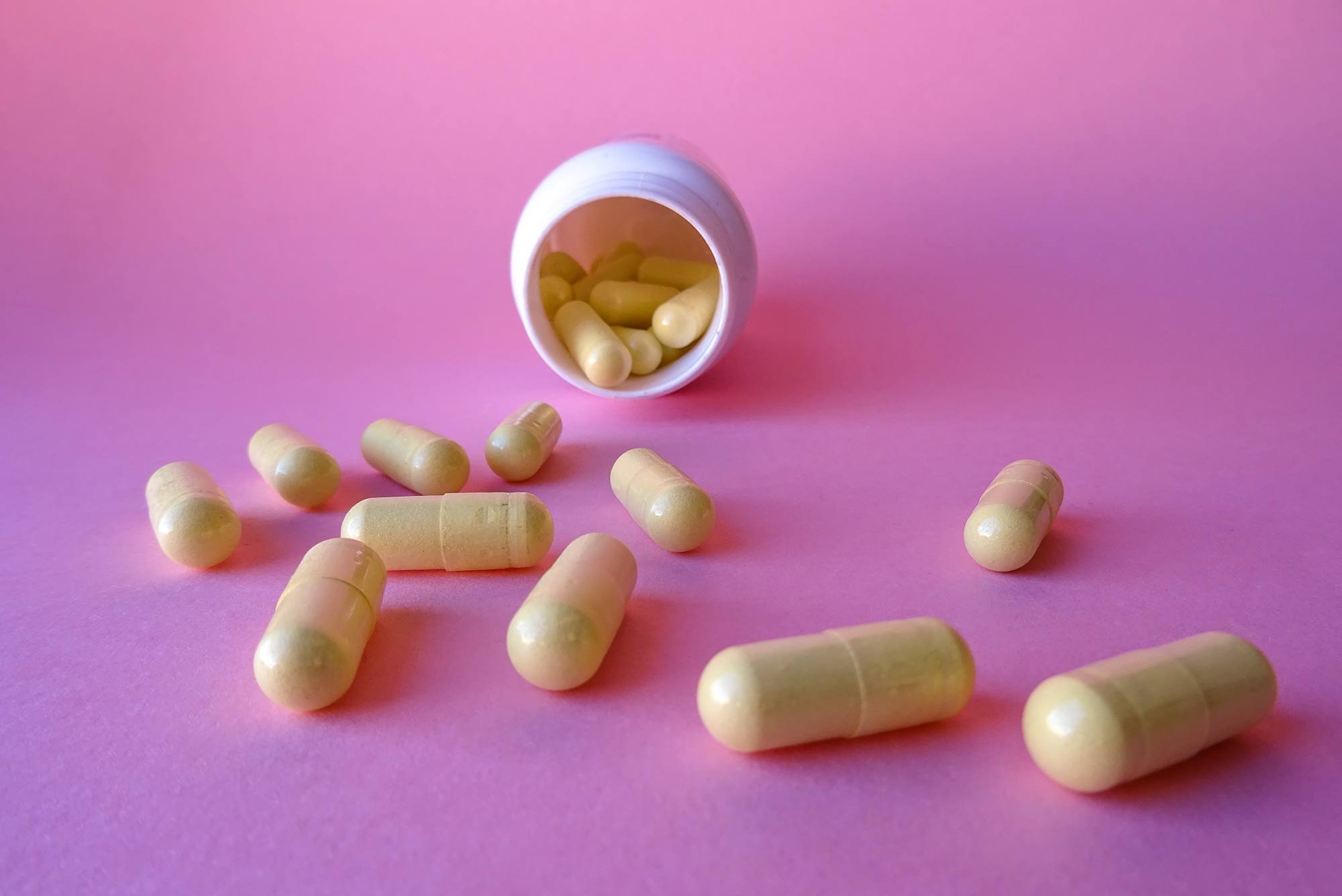The pancreas and it’s role in your health and wellbeing.
It’s probably not often that you think about your pancreas, but it plays a vital role in your body’s function.
The pancreas is an organ based in your abdomen, just in front of your stomach. A fish-like shape, your pancreas even has a small tail!
When the pancreas isn’t functioning properly you are likely to experience sugar issues and insulin resistance — the forerunner to diabetes. A poorly functioning pancreas may also under produce pancreatic bicarbonate, leading to excessive acidity going into the small intestine.
Fortunately, there are many things you can do to look after your pancreas and its function, and as always here at The Maas Clinic, we believe that self-awareness and self-knowledge is power. In this article we will be looking closely at the role your pancreas plays in your overall health, how to identify if you may have a problem with your pancreas, and how to take good care of it.



The pancreas has a number of roles when it comes to your body, it produces:
1. Key digestive enzymes, including proteases, lipase and amylase
2. Insulin, which is used to regulate the sugars in your body
3. Pancreatic bicarbonate which neutralises stomach acid
How can you tell if you may have a problem with your pancreas?
Here’s what to look out for, when it comes to your pancreatic health:
- excessive thirst
- excessive urination
- dizziness and feeling faint — this can be indicative of hypoglycemia
- high cholesterol
- high blood pressure
- struggling to lose weight, or gaining weight
If you experience hypoglycemia you’ll likely notice:
- a cold sweat
- narrowing field of vision
- feeling faint
- cravings
- mood swings and temper issues
- feelings of depression
- headaches
What are some of the most common pancreatic issues people experience?
We’ve likely all experienced the rollercoaster of a ‘sugar high’, followed by a ‘sugar low’. Perhaps you over-indulged in cake and sweets around your birthday, or you over-ate watching re-runs of your favourite TV show.
From time to time, we all consume more sugars than our bodies can easily process. However, regular overconsumption of sugars puts pressure on your pancreas, and just like any other organ, if you regularly misuse it, your pancreas will start to malfunction.
The reason you experience that ‘sugar low’, medically known as hypoglycemia, is because your body will over-secrete insulin to manage high sugar levels. As with all things that go up, your sugar levels will inevitably need to come back down.
As Laurens Maas says:
“If you go up sugar mountain, you get a free pass to sugar valley! Unfortunately, though it’s got a nice name, sugar valley is anything but."
How can you test for a problem with your pancreas?
There are two tests we like to use at The Maas Clinic to test for problems with your pancreas:
- A fasting blood sugar test. This can usually be completed after 2 – 3 hours of fasting.
- A HbA1c test, for haemoglobin.
A fasting blood sugar test can be done on the day, and its results indicate recent blood sugar activity.
The HbA1c test is much more accurate. It is able to indicate how well an individual has been controlling their blood sugars over a 3 – 4 month period. The HbA1c test is Laurens’ preferred test since it gives detailed information. This information can then be used to inform a treatment plan.

Type 2 diabetes and the pancreas
The most commonly known illness associated with the pancreas is diabetes.
Type 1 diabetes, also known as child-onset diabetes, occurs when an individual cannot produce insulin at all. This is usually diagnosed when an individual is very young.
Type 2 diabetes is adult onset, and it is preventable and curable. Type 2 diabetes is caused by excessive consumption of sugars over time which causes the pancreas to malfunction. This type of diabetes is unfortunately increasingly common the world over, even in young children. Type 2 diabetes is reflective of an individual’s lifestyle, environment and food and drink choices. It is caused by the weakening of the pancreas due to the routine over-consumption of sugars. Fortunately, given that type 2 diabetes is caused by an individual’s choices, it is eminently possible to reverse the effects, and even cure the disease. Though it must be noted that it takes discipline, and good biochemical and nutritional work to do so.
Interestingly, in Eastern medicine the emotions attributed to the pancreas are self-esteem and self-control. When it comes to type 2 diabetes, arguably the two emotions which the individual will be struggling with are both a lack of self-control, resulting in the over-consumption of sugar. And, as a result, a dip in self-esteem. Conversely, when someone exercises self-control it holds hands with a boost in self-esteem.
Given the accuracy of the HbA1c test, once a client is on a treatment plan for diabetes, it is possible to accurately track their progress. The results of their lifestyle shifts will be reflected in their A1c number.
How the pancreas is linked to your digestive health
Aside from insulin, your pancreas also produces digestive enzymes including proteases, lipase and amylase to help break down your food.
If you’d like to learn more about your digestive health, be sure to check out our in-depth articles on the topic.
How the pancreas is linked to your hormonal health
Your body is akin to a big company headquarters. Though there is a CEO (your brain) there are many departments which need to work efficiently to make sure that your company is working well, and enjoying great results. As with all companies, if one department isn’t pulling its weight, it will have a negative impact on another department and its workload. Such is the case with your pancreas and your hormones.
If your pancreas isn’t working as it should be, it will have a negative knock-on effect on your hormones. Here’s how…
When the pancreas doesn’t work properly and you can’t regulate insulin, your oestrogen levels will rise as a consequence. Oestrogen helps your body to turn sugar into fat cells. As your oestrogen rises, progesterone — its opposite hormone — will fall. A decline in progesterone can cause a number of negative side-effects, including:
- dry hair, skin and nails
- PMS
- ovarian cysts
- fibroids
- endometrial hyperplasia (when the lining of the uterus becomes abnormally thick)
- a predisposition to uterine cancers
Progesterone has a huge impact on your hormonal health. It also supports your thyroid, which produces other life-giving hormones including T3 and T4 which impact your ability to metabolise food. Once your thyroid starts to slow down, your metabolic digestive processes also slow down.
If you are interested in learning more, take a look at our article on hormonal health.


How Integrated and Functional Medicine can assist your pancreatic function
Here at The Maas Clinic we create bespoke treatment plans for every client. We use a combination of Functional and Integrated Medicine techniques to get to the root cause of your issue, and treat it from the ground up. We don’t just look at symptoms, we are forensic about our investigation into why you are experiencing a certain illness or disease. Your pancreas included.
Here’s a glimpse at how we approach your pancreatic health on an Integrated and Functional level:


On a Functional Medicine level
- Which minerals are you in need of, to support your pancreas and its function? Chromium, calcium, potassium, magnesium, vanadium and zinc are all essential. These minerals ensure that your body has enough resources with which to make your pancreatic hormones.
- Incorporating herbs. There are a number of herbs you can use to manipulate the pancreas’ efficacy including: fenugreek and Gymnema Sylvestre.
- Regular, balanced meals throughout the day, inclusive of snacking. Through this you’ll experience stable sugar levels, which in turn will benefit your pancreas.
On an Integrated level
- Exercise can help you to burn off excess sugars, hence easing up pressure on your pancreas.
- Meditation helps to stabilise your cortisol, which in turn mediates your blood pressure. It is also a tool to exercise self-control, which as we addressed earlier, is the emotion alongside self-esteem attributed to the pancreas in Eastern medicine.
If you’d like to discuss your individual needs further, we’d love to help. Book an appointment, and we’ll gladly talk through your individual health concerns in more detail with you.
Curious to learn more? Take a look at some of our favourite resources on the subject of pancreatic health:
Curing Diabetes in 7 Steps by Laurens Maas
The Total Fat Cure: Solving the Fat Trap by Laurens Maas
The Blood Sugar Solution by Dr Mark Hyman

 Phoenix Maas
Phoenix Maas Our Team
Our Team